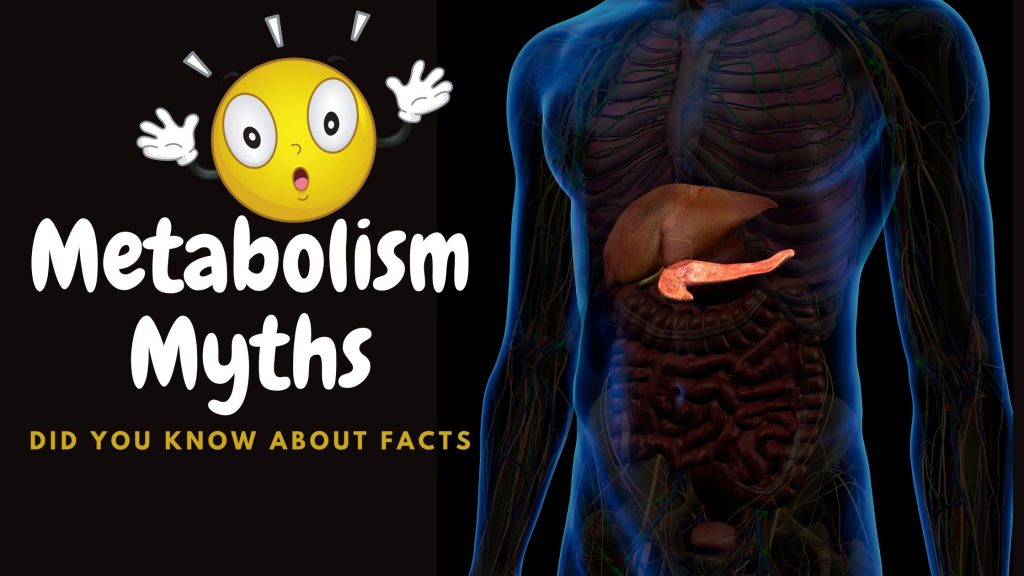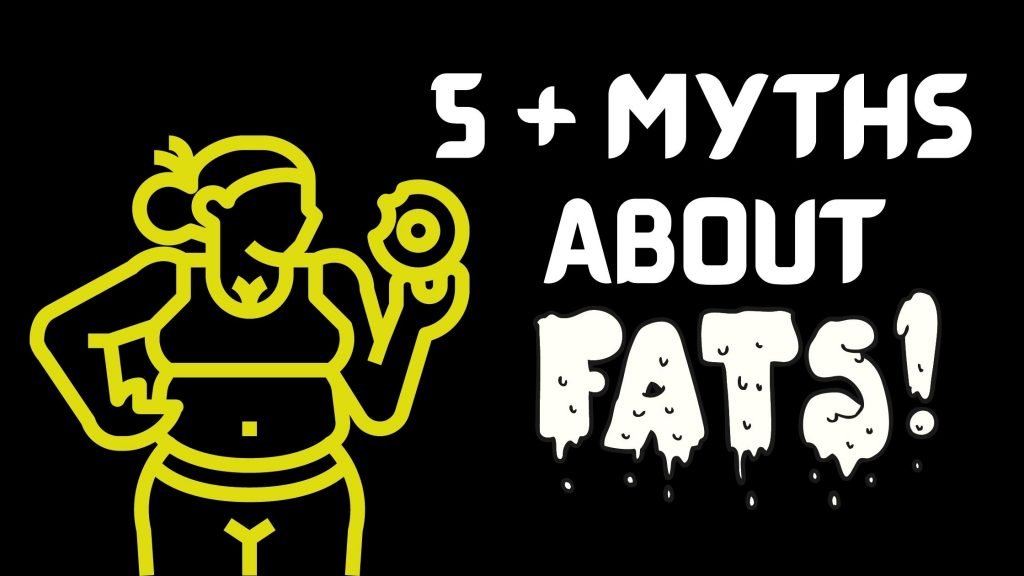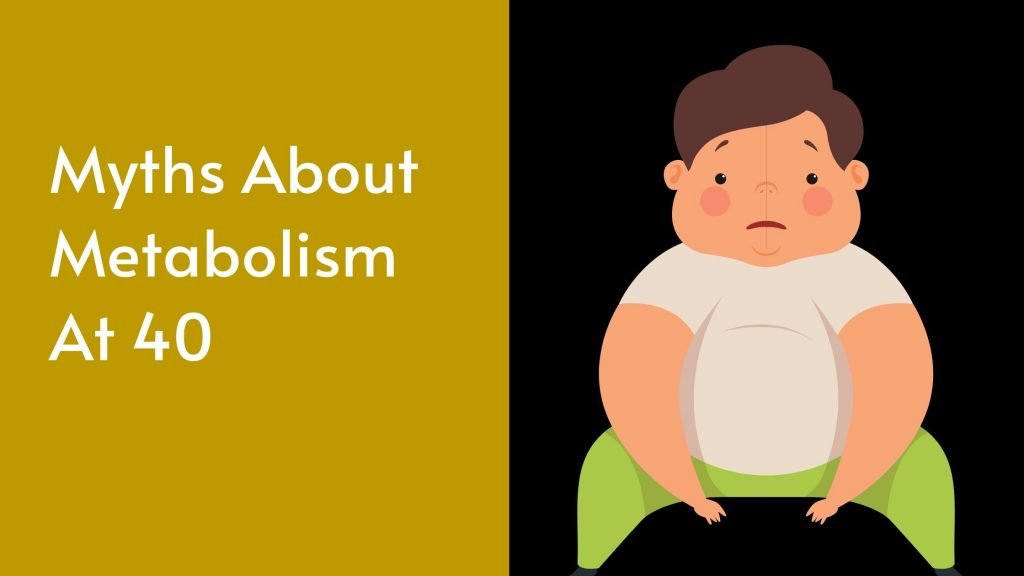Most of us are concerned about our health and weight, and most of us struggle with weight issues.
We conveniently blame metabolism for our failure to keep our weight under control. We even blame it for weight gain. But is metabolism the only thing to be blamed for our inefficiency in losing weight or for weight gain.
Lots of misinformation abounds about metabolism, including myths that it can be boosted easily, or it can go down, or it can go up. Through the internet and social media, we’re told that if you want to lose weight or maintain weight, you have to take care of your metabolism.
There are probably more myths out there on how to boost metabolism than actually the successful practices to boost it. Not only most of this information misleading but also inaccurate. For ordinary people, it can become challenging to separate facts from fiction.
But first let’s try to understand what metabolism is and then dispel the common myths associated with it.
What is metabolism?
Metabolism is the process by which our bodies convert what we eat into energy that is used to sustain bodily functions. These functions include breathing, circulation, digestion, excretion, and neurological functions.
The basal metabolic rate (BMR) refers to the number of calories required to fuel all our vital bodily functions at rest. Each person’s BMR is different and depends on various factors, including body size, body composition, gender, etc.
We know that a fast metabolism burns more calories quickly, and a slow metabolism burns fewer calories.
However, each of these factors combined determines your metabolic rate, and our lifestyle choices (diet and exercise) significantly impact these factors and subsequently our metabolism.
Now that we understand metabolism a bit better, let’s try to debunk some metabolism myths.
Metabolism myths
Myth #1 : Metabolism is the same for men or women
Men usually have a higher metabolism because they have more lean muscle than women. This means that they burn more calories at rest than women.
The basic processes of metabolism remain the same in both men and women, but weight loss tends to be more difficult for women and easier for men since they burn more visceral fat after exercising.
Hormones also play a prominent role in metabolism. Women go through puberty, pregnancy, and menopause, which affect their hormonal balance and metabolism.
However, caloric intake and other lifestyle factors can significantly impact the metabolism of both men and women.
Myth # 2: Thinner people have higher metabolism rates than overweight people
Actually, skinnier people have slower metabolic rates than overweight individuals.
The bodies of larger people burn more calories just due to their size. They require more energy to carry out the essential body functions.
Myth #3: Older people have slower metabolism
While it is true that our metabolism slows down as we age, it isn’t inevitable. It primarily happens because as we age, we tend to exercise less or less intensely than we used to – and that means fewer calories burned per day.
An increase in sedentary lifestyle, trouble regulating meals, changes in hormone levels, lack of sleep, increased stress levels are the likely factors that contribute to this metabolic decrease with age.
So, as you get older, it is essential to make exercise a regular part of everyday life, keep stress under control and sleep for at least 7 to 9 hours at night.
Myth #4: Eating small meals during the day increases your metabolism
Studies show that eating small meals throughout the day does not boost metabolism.
That said, this approach might keep you from getting too hungry and overeating. Some athletes find that they perform better when they eat smaller but more frequent meals.
If you are comfortable with eating 3 meals a day or 6 meals a day, you should do it but make sure that you eat healthy food and avoid junk food.
Eating small but sensible meals throughout the day keeps energy and blood sugar levels more stable. This can also help prevent overeating later in the day.
Myth #5: Certain foods boost your metabolism
While some studies have shown that certain foods, such as green tea, caffeine, and hot chili peppers, can increase metabolism, but that increase is minimal and temporary.
These foods temporarily boost metabolic rates, but not enough to make a difference in your weight.
So, focus on eating a balanced diet comprising whole and nutritious food to keep your metabolism moving.
Myth #6: If you eat late at night your metabolism suffers
There is little evidence to support the fact that eating late at night impacts your metabolism.
However, scientific evidence suggests that your metabolism might benefit from eating more calories earlier in the day.
Moreover, being strict with your eating schedule will also help you to keep your metabolism in check. Eat meals on a regular schedule, eat mindfully and stop eating when you’re satisfied.
Myth #7: Cardio is the best exercise for boosting metabolism
Cardio isn’t the best metabolism-boosting workout.
Cardio exercises may help burn calories, but it’s not the best way to boost metabolism.
Building muscles can increase your BMR and can burn calories even when you’re not working out. So, resistance training like weightlifting is excellent to boost your metabolism. Exercises like HIIT, squats, planks are also equally good to boost metabolism.
Myth #8: Intermittent fasting improves metabolism
Research suggests that intermittent fasting has the same or less negative effect on metabolism compared to traditional dieting.
Although short-term fasting of 30 hours can improve your metabolism, long-term fasting may impair metabolism. Health experts, therefore, recommend eating as per circadian rhythm; that is, if you eat your supper at 7 PM, you should not eat anything till 7 AM the next day.
It gives your body the time to go through the cellular regeneration and recovery process.
Conclusion
Our metabolism functions quite consistently on a day-to-day basis; however, several factors affect metabolism. There are lots of metabolism myths lets us busting the metabolism myths.
Metabolism is the process by which your body converts what you eat into the energy needed to fuel your body. Even when your body is at rest, it needs fuel to carry out its essential functions, like breathing, digestion, blood circulation, excretion, etc.
Our metabolism functions quite consistently on a day-to-day basis; however, several factors affect metabolism.
It is a common belief that increasing your metabolism helps you burn more calories and enhances weight loss. However, many myths are associated with metabolism, some of which may backfire and cause you more harm than good.
Here we’ve tried to debunk some of the myths associated with metabolism. Hope these facts can help you understand metabolism better and help you take better care of your health.
In summary, we can say that remaining physically active and consuming a healthy diet is essential to keep your metabolism ticking and lead a disease-free life.



